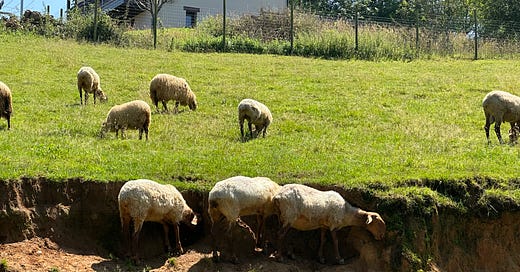Humans have very sophisticated cognitive abilities. We are the only animals that ask questions and ask ourselves the whys and wherefores of things. This ability gives us a great cognitive advantage over other animals. We also have the ability to think about the future and, therefore, about the long-term consequences of our actions. However, the combination of the ability to project ourselves into the future and the ability to ask why comes at a very high cost, because it is what makes us aware of the inevitability of death and what that means. How is that good for us? the author asks.
In the same way it calls into question some of the other capabilities that we regard as very valuable. We’ve acquired a very sophisticated language that provides us with communication possibilities with other people that are not available to any other species; we’ve also developed complex mathematics and, thanks to science, we have goods that make our lives much easier. However, we also use these capabilities to attack each other, to the point where we can put the species in danger of destroying itself.
The list of capabilities in which we surpass other animal species is very long. The author highlights, in addition to intelligence, language, rationality, or morality, but it is not clear that, when it comes down to it, these acquisitions have given us better lives than those enjoyed by other animals. According to the author, this would explain why human intelligence has not been generalized to the rest of the species.
The book is entertaining, very well written and provides interesting information, some of it in the form of juicy anecdotes about the capabilities of other species. But I was left with the feeling that at the beginning it promised more than it delivered in the end. At first, when it deals with the subject of death, and the search for whys, I thought it was going to be more concerned with psychological or even philosophical questions. This was not the case. The subject to which he has devoted most of his time is the inability of our species to deal rationally with the problem of global warming, an inability that he attributes to what he calls "prognostic myopia", a myopia that prevents us from giving importance to the challenges and problems that may arise in the long term because we put the satisfaction of short-term needs (or substitutes for needs) first. However, I do not believe that our lack of foresight in this area is due to prognostic myopia, because there are forecasts and they have been agreed upon by the vast majority of climate science specialists. The problem is of a different order, although this is not the occasion to deal with this issue.
However, Justin Gregg has not explored the implications, in the field of psychology or philosophy, as I said before, of an excessive inclination to search for the why of things or of existence itself.
Finally, according to the author, the reason that our cognitive capacities have not been extended to many more species is precisely that those capacities provide more disadvantages than advantages. This is a misconception. The reasons why, evolutionarily, some traits are successful or unsuccessful are not based on disadvantages of the kind discussed in this book. They must be traits that affect, via survival or reproductive potential, the ability of the species to reproduce and pass on to future generations traits that, in turn, confer that same ability to reproduce and leave copies of their genome.
In short, if you are interested in animal cognition, this is an entertaining, easy to read book with some brilliant moments. If you are interested in delving into existential questions, this is not your book. I was one of the latter.
Title: If Nietzsche were a narwhal: What animal intelligence reveals about human stupidity
Author: Justin Gregg
Ed. by Hodder & Stoughton, 2022.






Si das con algún libro que aborde las cuestiones existenciales en un marco como este, me avisas.